Planet Scenes February 2022

|
February 28 In this wide angle view, we see Venus and Mars still in roughly the same orientation to each other, but they have both moved well east of the Teapot and Teaspoon asterisms of Sagittarius and are now almost to the border with Capricornus. In several weeks, Saturn will join the scene as it rises higher in twilight, while Venus and Mars rush eastward to overtake it. |
|
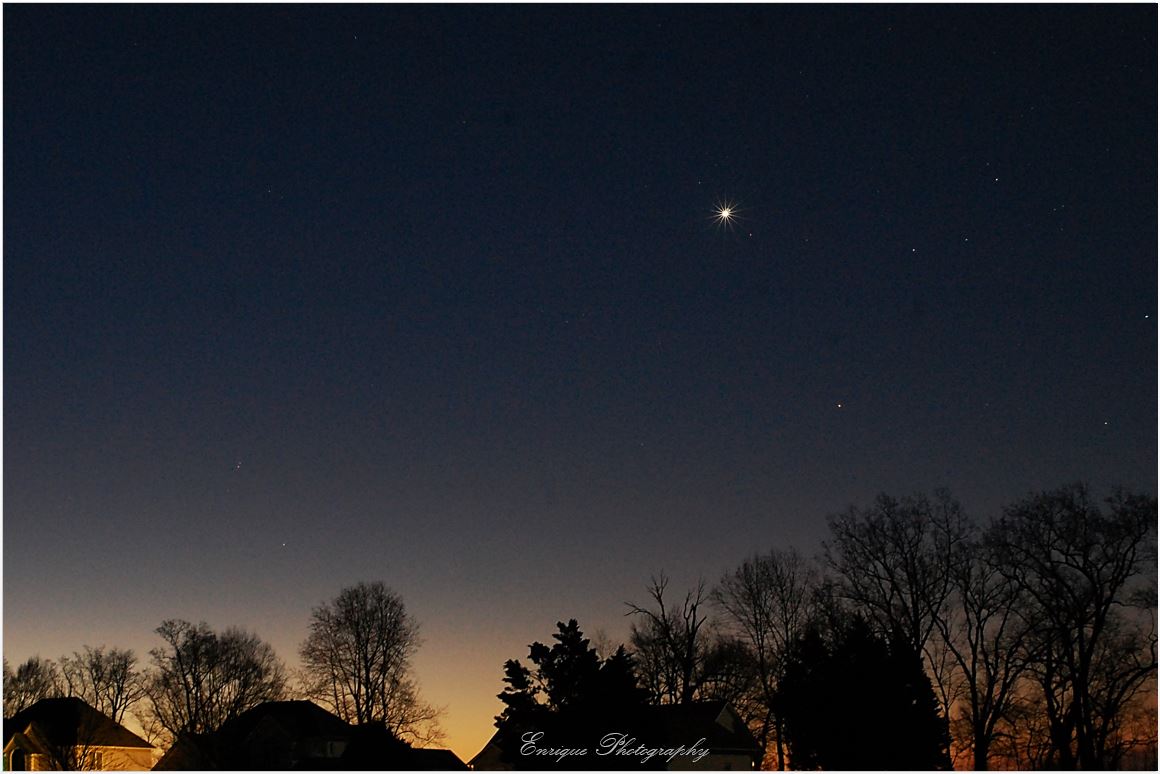
|
February 21 Venus and Mars have almost cleared the main patterns of Sagittarius, namely the Teapot and Teaspoon asterisms, with their next targets being the distinctive pair of stars α and β Capricorni, visible at lower left in this image. On this morning, Mars has brightened slightly to +1.30 while Venus is of course still dazzling at magnitude -4.61 and 5° 3' north of the ecliptic. |
|

|
February 20 By the 20th, Jupiter has all but disappeared from the evening sky. I was able to get a glimpse of Jupiter with binoculars in the deep twilight but could not see it with unaided eye. So the only planet action left until Venus rises around 5 o'clock is Uranus in Aries. Barely detectable in dark skies without optical aid, the green planet is making its way slowly eastward across the barren fields of Aries. |
|
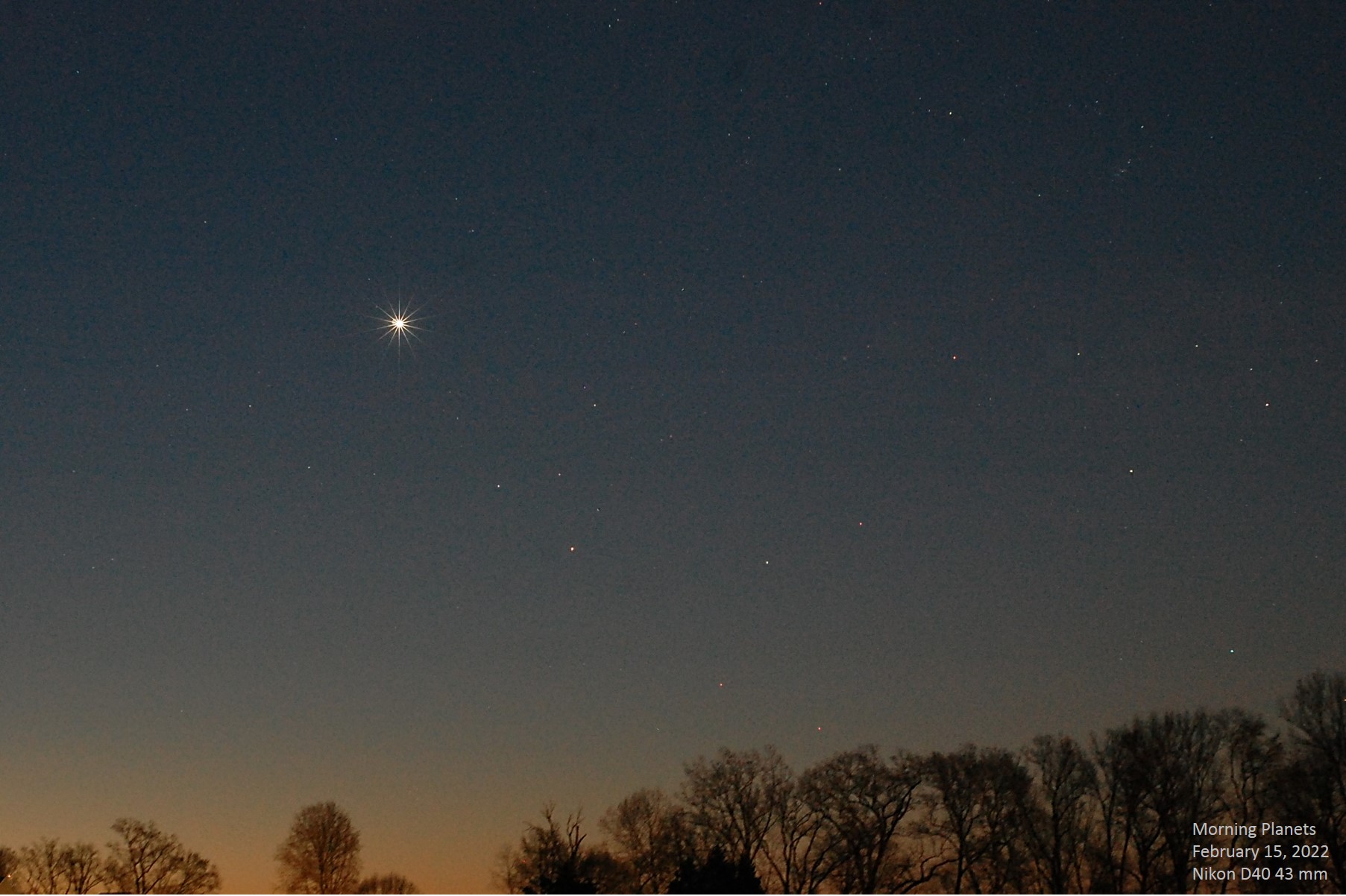
|
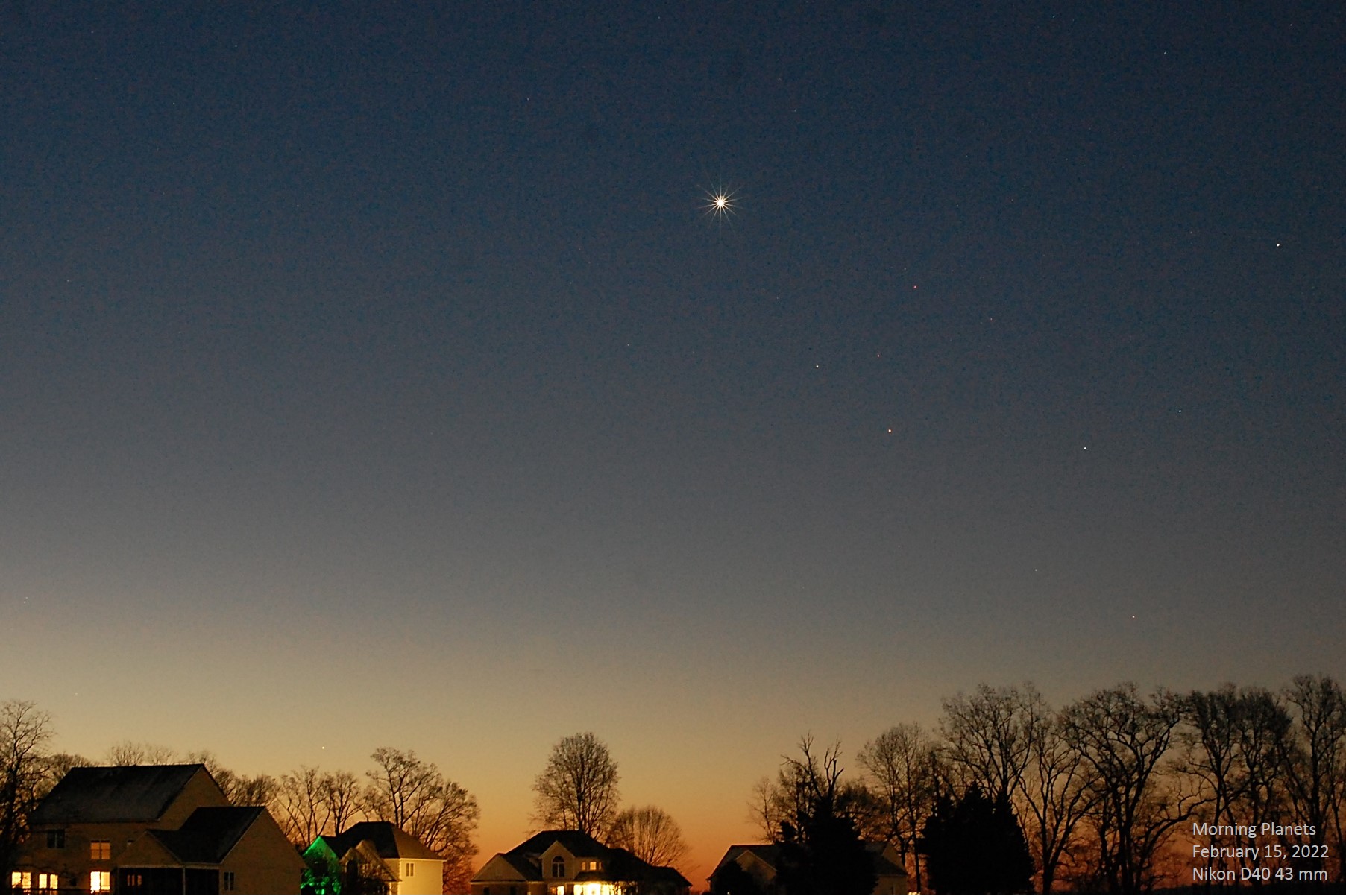
|
February 15 A setting full Moon brightened the sky this very cold and clear morning so we don't have a dark sky against which to see Venus and Mars, but we can still get a sense of their movement compared to earlier in the month. Mercury is still brightening but also heading south of the ecliptic, so the triangle made by the three will continue to change shape. |
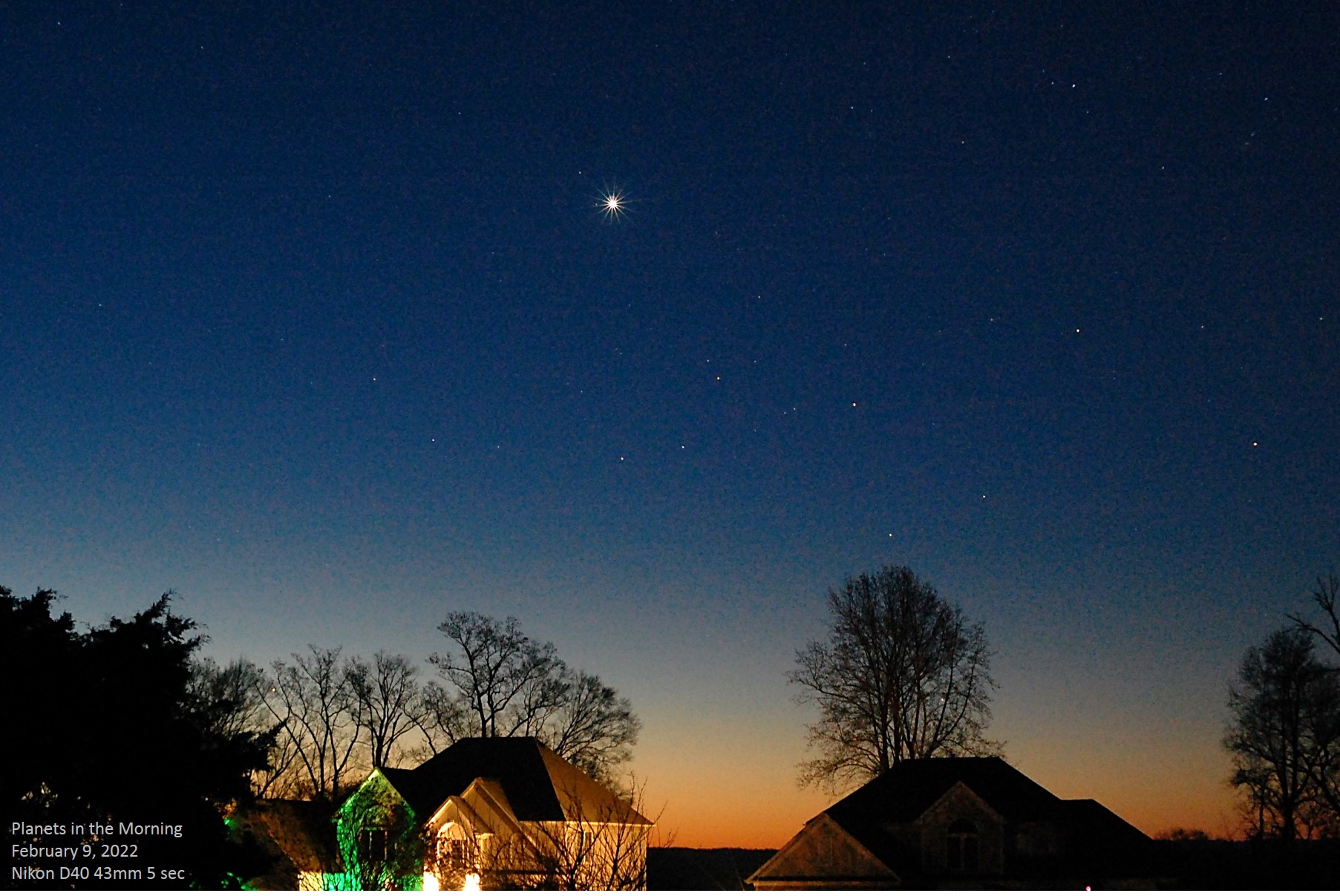
|
February 9 Our weather was very clear and still cold this morning, so we had a great view of the three planet scene and can see, for the first time, the Teapot of Sagittarius clearly against a still-nearly-dark sky. Mercury is still above the ecliptic, Mars is and will continue to be below it for much of the year, and Venus is still over 6° north of the ecliptic. |
|

|
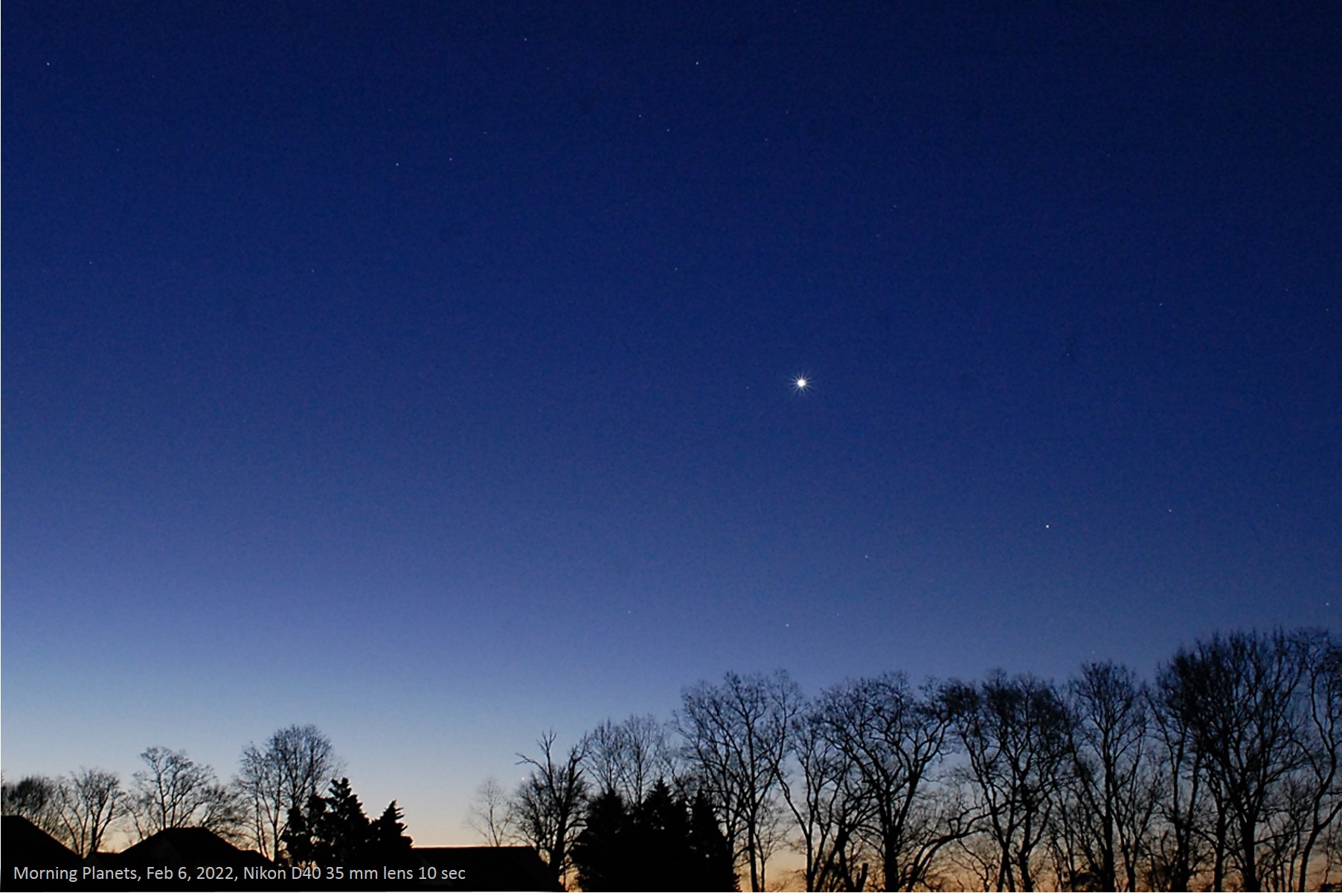
|
February 6 The planet activity in the morning sky is increasing as now Mercury has risen high enough to be seen in early twilight, joining Venus and Mars. Note the movement of Mars in the second image compared to the image from February 1 below, and the fact that Venus is now slightly east of its position from a week ago. |

|
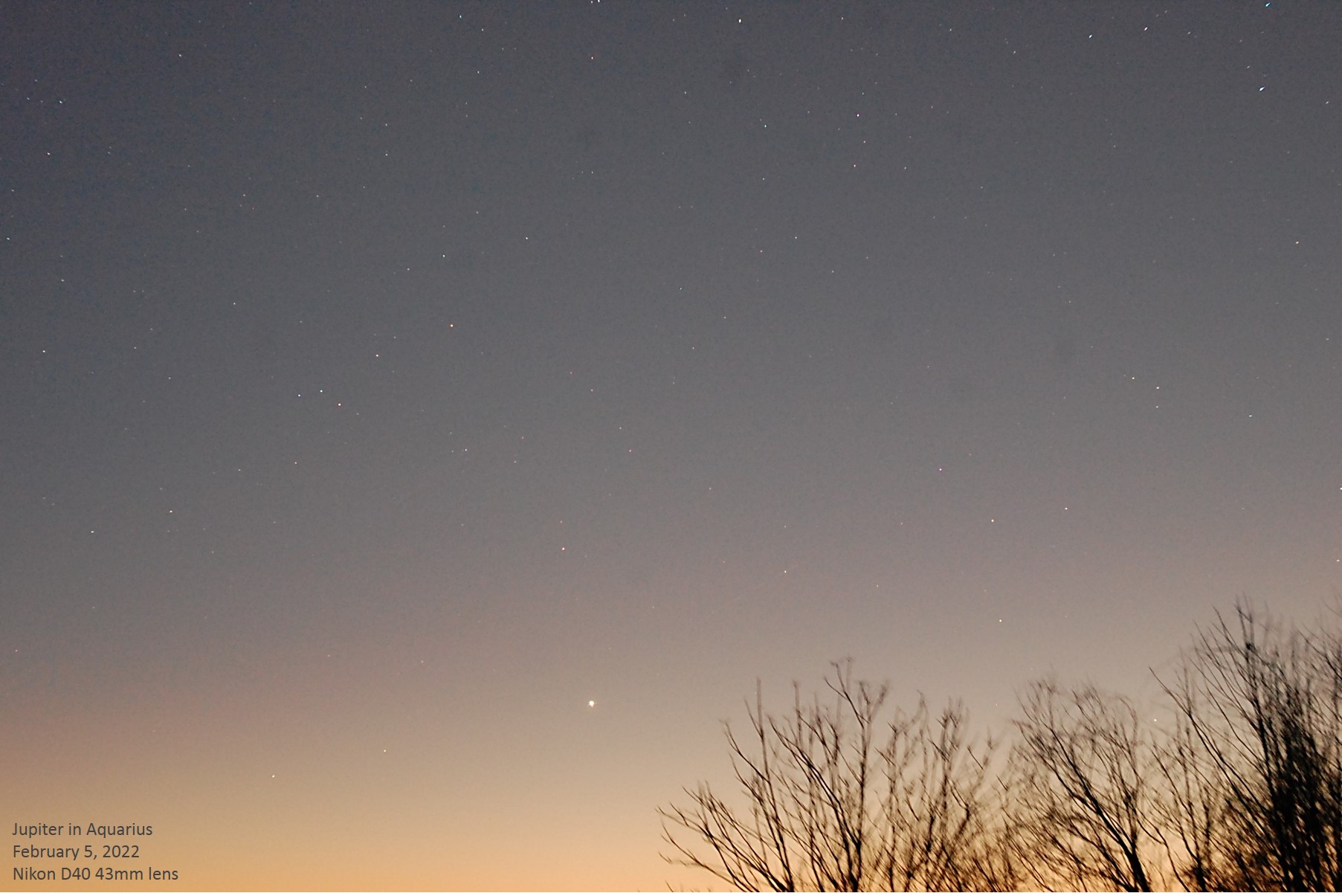
|
February 5 Jupiter continues to sink in the west after sunset even as it moves eastward against the stars of Aquarius. Note how in this image Jupiter is aligned with Delta and Tau, whereas on January 26 it was considerably below that line. Neptune can barely be seen in the upper left; it is at magnitude 7.95 on this evening. The detailed image seems to show indications of the volcanic aerosols in the atmosphere, given the pink/purple coloration, although the first image of the twilight scene doesn't give that indication. |

|
February 1 The dance of Venus and Mars continues this month as Mars' greater speed in the early stages will carry it underneath Venus and to a more easterly ecliptic longitude ~ for a while! Then, Venus will begin to pick up steam and overtake Mars in the eastward race, reaching the outer planets Saturn and then Jupiter before Mars will. Meanwhile, we await Mercury rising out of the twilight to join Venus and Mars in the next week or so. |
|